In the rapidly advancing world of telecommunications, the terms 5GE and 5G have emerged as focal points of discussion.
While they might sound strikingly similar, they encapsulate distinct technological nuances that set them apart. The 5GE vs 5G debate delves into the heart of these differences, unraveling what each term truly signifies and how they impact our digital experiences.
This article aims to demystify the 5GE vs 5G conundrum, shedding light on the essence of 5GE and how it stands compared to the revolutionary 5G.
Also, if you’re a gamer and equally excited about your handheld gaming experience, our review of the Retroid Pocket 3 Plus is a must-read.
Join us as we navigate the intricate landscape of these wireless technologies, understanding their origins, capabilities, and the future they promise.
Table of Contents
What is 5GE?
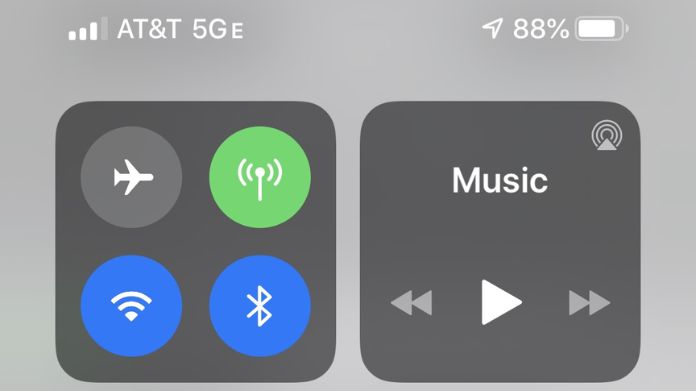 5GE, standing for 5G Evolution, has become a buzzword in the telecommunications sector, often leading to confusion in the 5GE vs 5G debate. Contrary to its name, 5G is not a proper technology.
5GE, standing for 5G Evolution, has become a buzzword in the telecommunications sector, often leading to confusion in the 5GE vs 5G debate. Contrary to its name, 5G is not a proper technology.
Instead, it represents an enhanced version of the 4G LTE network, often likened to LTE Advanced or LTE+. Introduced by AT&T in 2018, the company marketed 5GE as a significant step up from traditional 4G, aiming to bridge the gap between 4G and 5G.
While 5GE offers improved speeds over standard 4G, it doesn’t match the groundbreaking performance promised by genuine 5G.
In the 5GE vs 5G comparison, it’s crucial to recognize that 5GE serves as a transition phase, preparing networks and users for the entire 5G experience.
What is 5G?
 5G, representing the fifth generation of wireless cellular networks, is the latest leap in telecommunications technology.
5G, representing the fifth generation of wireless cellular networks, is the latest leap in telecommunications technology.
Unlike its predecessor, 4G or the transitional 5GE, 5G promises transformative advancements in speed, capacity, and consistency.
When diving into the 5GE vs 5G discussion, it’s clear that 5G stands out with its ability to offer ultra-fast data download and upload speeds, making activities like live streaming, gaming, and augmented reality smoother than ever.
Beyond speed, 5G ensures lower latency, resulting in near-instantaneous online interactions. This efficiency is pivotal for innovations like self-driving cars and smart cities.
If you’re curious about the latest technology trends, consider exploring the world of audio gadgets, like translating earbuds.
While 5GE is an enhanced version of 4G, bridging the gap to 5G, the actual 5G experience is distinct and unparalleled. As 5G continues its global rollout, it’s set to revolutionize how we connect, work, and play.
5GE vs 5G: Key Differences
5GE, or 5G Evolution, is an enhanced version of the 4G LTE network. Introduced by AT&T, 5GE was marketed as a bridge between 4G and 5G, offering improved speeds over standard 4G.
However, it’s crucial to understand that 5GE is not genuine 5G. It’s more of a marketing term to indicate that the network is on the path to 5G.
1. Technical Differences
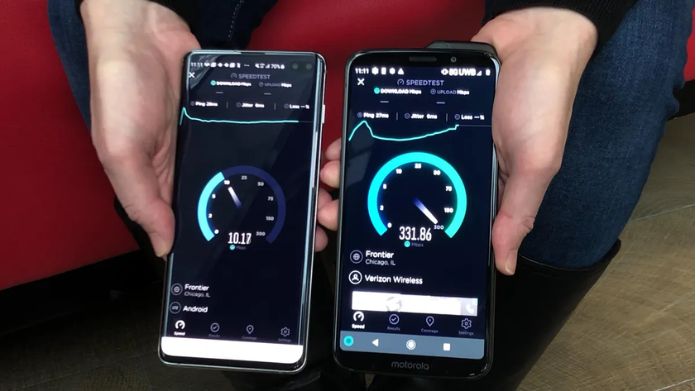 Both terms represent advancements in wireless technology, but they differ on several key parameters:
Both terms represent advancements in wireless technology, but they differ on several key parameters:
Origin
- 5GE: An acronym for 5G Evolution, 5GE is essentially an enhanced version of 4G LTE, often equated with LTE Advanced.
- 5G: Representing the fifth generation of wireless networks, 5G is a new and distinct technological leap, offering transformative benefits over previous generations.
Speed
- 5GE: While faster than traditional 4G, 5GE speeds are a notch below genuine 5G. It offers a slight boost, making it superior to 4G but not groundbreaking.
- 5G: 5G promises ultra-fast data transfer rates, with potential peaks reaching up to 10 Gbps, dramatically outpacing 5GE.
Latency
- 5GE: Improvements over 4G are evident, but latency remains higher than 5G.
- 5G: Boasts incredibly low latency, ensuring near-instantaneous data transfer and response times, vital for real-time applications.
2. Marketing and Consumer Perception
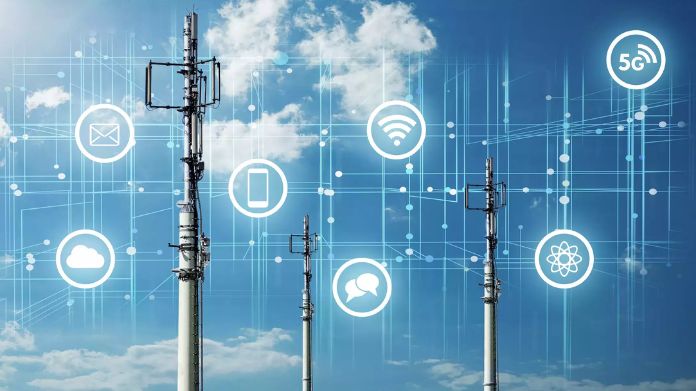 Let’s delve into how marketing and consumer perception differ for these two terms across various parameters:
Let’s delve into how marketing and consumer perception differ for these two terms across various parameters:
Branding and Messaging
- 5GE: Marketed as the 5G Evolution, 5GE is often positioned as the bridge to 5G. Some campaigns have emphasized its enhanced 4G capabilities, but this can lead to confusion, with consumers mistaking it for true 5G.
- 5G: Promoted as the next big leap in wireless technology, 5G marketing focuses on its groundbreaking speeds, low latency, and transformative potential.
Consumer Expectations
- 5GE: Due to its branding, many consumers expect 5GE to offer a taste of 5G speeds and benefits. However, some may feel underwhelmed when they realize it’s an improved 4G.
- 5G: With the hype surrounding it, consumers anticipate blazing-fast internet, seamless streaming, and a revolution in digital connectivity.
Adoption and Trust
- 5GE: The blurred lines between 5GE and 5G in marketing can lead to skepticism. Consumers may need to get the whole experience they were promised.
- 5G: As more genuine 5G networks roll out and deliver on their promises, trust and adoption are likely to grow. However, initial skepticism due to the 5GE vs 5G confusion can be a hurdle.
Promotional Tactics
- 5GE: Brands have used terms like next-gen and faster speeds to promote 5GE, emphasizing its superiority over standard 4G.
- 5G: Marketing campaigns for 5G often showcase futuristic scenarios, from smart cities to augmented reality experiences, highlighting its transformative nature.
3. Device Compatibility and Network Availability
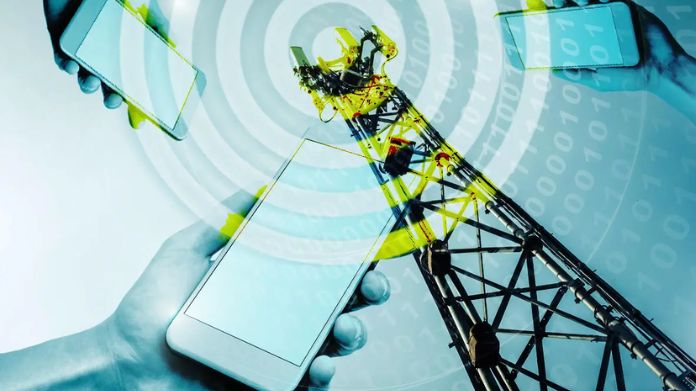 Both these terms represent advancements in wireless technology, but how do they fare when supporting devices and network reach?
Both these terms represent advancements in wireless technology, but how do they fare when supporting devices and network reach?
Let’s break it down:
Device Support
- 5GE: One of the selling points of 5GE is its compatibility with most 4G devices. Users don’t need to invest in new hardware to experience the enhanced speeds of 5GE, making it a cost-effective upgrade for many.
- 5G: True 5G requires specific hardware support. This means users need 5G-enabled devices to tap into the full potential of this next-generation network. As the technology is still in its infancy, 5G devices are relatively fewer but are multiplying in number.
Network Infrastructure
- 5GE: Building on the existing 4G infrastructure, 5GE networks are more widespread. The enhancements are software-based, allowing for quicker rollouts.
- 5G: Establishing a 5G network requires new infrastructure, from updated towers to advanced technological components. This means its rollout is more gradual and capital-intensive.
Coverage
- 5GE: Given its foundation on 4G infrastructure, 5GE boasts broader coverage. Most areas with 4G connectivity can access 5GE without significant overhauls.
- 5G: Being a newer technology, 5G’s coverage is still expanding. While major cities and tech hubs might experience early adoption, rural areas might have to wait longer.
Device-to-Network Transition
- 5GE: Devices operating on 4G can seamlessly transition to 5GE, given the network’s availability, without additional requirements.
- 5G: Transitioning to 5G requires users to upgrade their devices. Even if the network is available, without a 5G-compatible device, users won’t experience the network’s benefits.
Future-Proofing
- 5GE vs 5G: While 5GE offers a bridge between 4G and 5G, it’s the 5G technology that’s future-proof. As more devices support 5G and networks expand, the shift will naturally lean towards 5G, making it the standard for next-gen connectivity.
The Bottom Line
In the 5GE vs 5G debate, it’s essential to understand that 5GE is an enhanced version of 4G, while 5G is a new generation of wireless technology.
While 5GE offers improved speeds over traditional 4G, it cannot match the performance and capabilities of 5G.
Users may look forward to a quicker, more efficient, and more connected future as 5G spreads internationally.

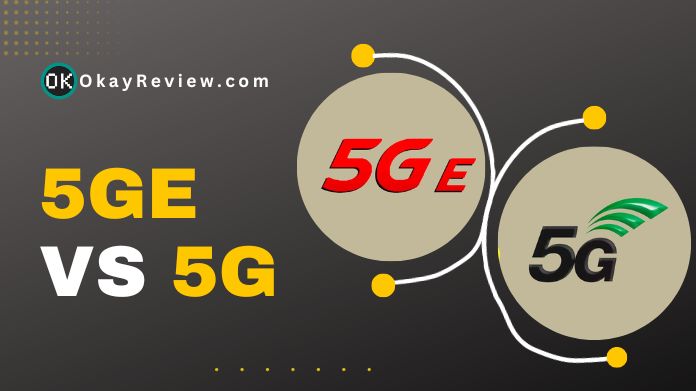
Your clear explanation of the differences between 5GE and accurate 5G technology is very informative. It’s interesting to learn that 5GE is essentially an enhanced version of 4G LTE, offering improved speeds but not quite reaching the capabilities of 5G. Understanding these distinctions helps set realistic expectations for network performance.